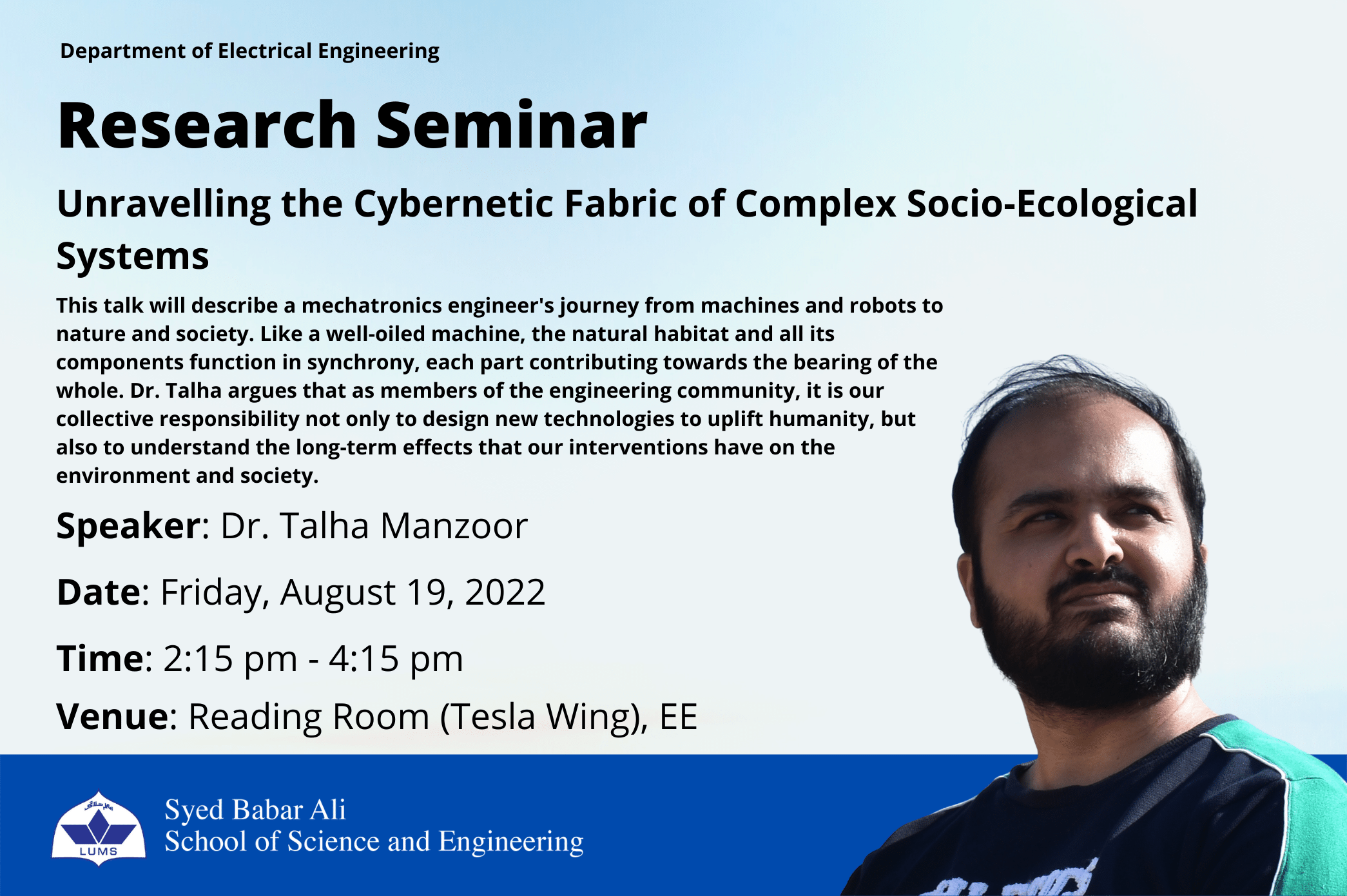
Unravelling the Cybernetic Fabric of Complex Socio-Ecological Systems
Dr. Talha Manzoor is generally interested in the modelling, control and estimation of socio-ecological systems where environmental phenomena overlap with societal and technological processes. He is especially intrigued by behavioral processes that lead to unexpected outcomes in complex systems. In his research he employs tools from systems and control theory, treating humans as endogenous elements of the system, as opposed to the conventional incorporation of human behavior as disturbances, exogenous inputs, or uncertainties.
Dr. Talha currently serves as an Assistant Professor at the Center for Water Informatics and Technology (WIT) at LUMS. At the Center he is involved in modelling and decision making for socio-hydrological systems with a focus on water in agriculture. He is also leading field investigations to study the operational hydrology of small rain-fed catchments through the deployment of hydrometeorological sensor networks and associated technologies. At LUMS, Dr. Talha teaches courses related to systems analysis, control, and robotics. His course on socio-ecological systems and sustainability covers different theoretical frameworks to study coupled human-natural systems under modern notions of sustainability. He holds a BS in Mechatronics Engineering from NUST and an MS in Computer Engineering from LUMS. He completed his PhD in Electrical Engineering from LUMS in 2018.

